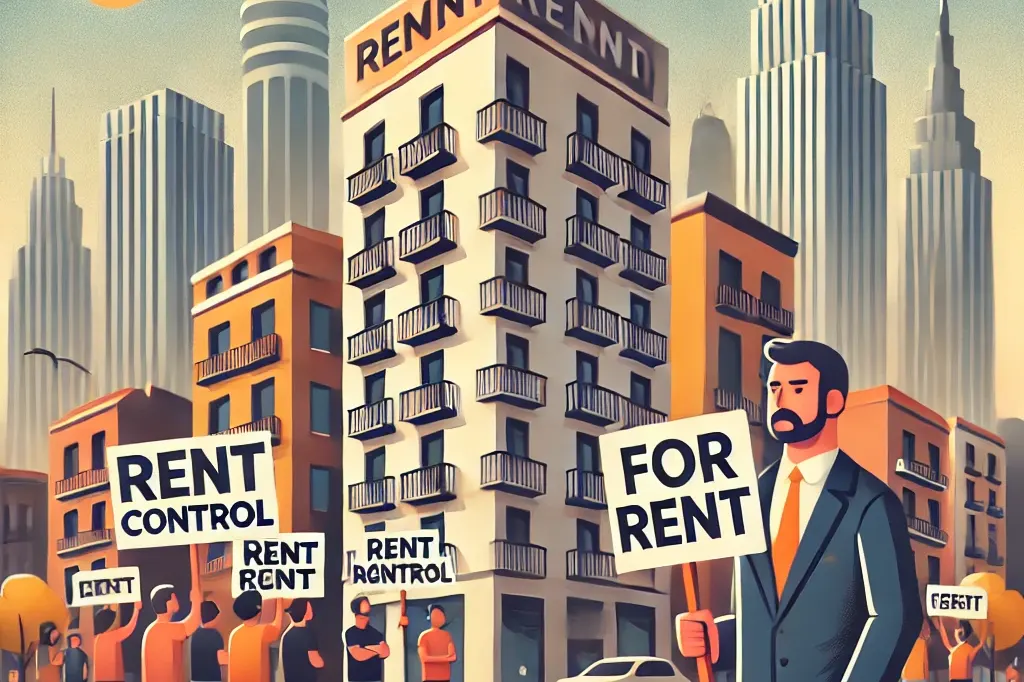The Issue of Affordable Housing: Who’s Really to Blame?
In late November, thousands of Barcelona residents took to the streets holding signs that read: “Housing is a right, not a business.” This message reflects a widespread issue tied to skyrocketing rental prices, making homeownership an unattainable dream for many. Protests target landlords and private investors, often blamed for the affordable housing crisis. However, the real cause of this phenomenon runs much deeper.
To understand the root of the issue, one must consider how the real estate market operates and what factors influence rental prices.
Myths and Reality
Among protesters, various myths circulate about the housing market and the crisis’s causes. Let’s break down the key ones:
- Myth 1: “Housing is a right, not a business.” Many believe real estate should not be an investment asset. However, the housing market operates under the same principles as any other market. High prices indicate a supply shortage, which drives new housing construction.
- Myth 2: Price controls will solve the problem. Experience in Berlin and Barcelona shows otherwise. In Berlin, after introducing rent control, available housing stock dropped by nearly 57%. In Barcelona, landlords began selling properties en masse, causing a rental shortage.
- Myth 3: Landlords are the main culprits. Protesters often blame property owners, overlooking the government’s role. High taxes and bureaucracy create additional barriers to developing the housing market.
Why Price Control Doesn’t Work
Rent control seems like an obvious solution. By setting a maximum rent, affordable housing can theoretically be ensured. However, such measures have serious side effects:
- Reduced supply: Owners prefer to sell properties or leave them vacant rather than rent them out at artificially low prices.
- Deterioration in housing quality: Landlords are not incentivized to maintain or renovate properties if investments won’t pay off.
- Growth of the shadow market: Renting “off the books” becomes common, further driving up costs.
Thus, price control exacerbates the problem, making housing even less accessible.
The Role of the Government
The government also bears significant responsibility for the affordable housing crisis. High taxes and bureaucratic hurdles make building and managing properties less profitable. Here are the main issues:
- Taxes: Property owners must pay up to 30% of rental income in taxes (IBI, IRPF, municipal fees), which increases the final rental cost for tenants.
- Bureaucracy: Complicated procedures for obtaining building permits delay projects and increase their costs.
- Lack of incentives: Instead of creating favorable conditions for investment, the government shifts responsibility to the private sector.
Real Solutions
The affordable housing crisis requires a comprehensive approach. Here are several steps that can help address the issue:
- Lower taxes: This would allow property owners to reduce rents while maintaining profitability.
- Simplify bureaucracy: Streamlining procedures for obtaining building permits would encourage new housing construction.
- Free market pricing: Attracting new investors would increase supply in the market.
These measures can help balance the market and make housing accessible to everyone.
Conclusion
Affordable housing is impossible without investments and increased supply. Fighting property owners and implementing price controls only worsens the situation. It is essential to focus on real barriers — high taxes and bureaucracy — that hinder market development.
📲 Contact us for a free consultation.
🎯 Find the latest property deals on our Telegram channel.
🏠 Stay updated with market insights and tips on our Instagram.

